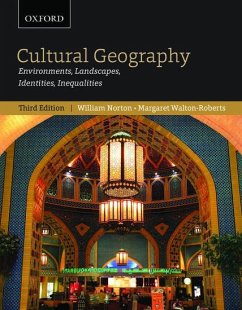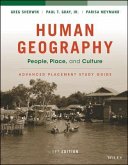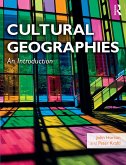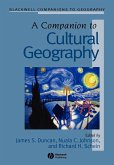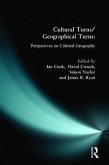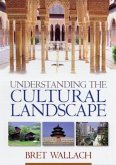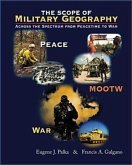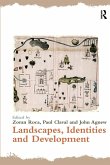William Norton, Margaret Walton-Roberts
Cultural Geography: Environments, Landscapes, Identities, Inequalities, Third Edition
William Norton, Margaret Walton-Roberts
Cultural Geography: Environments, Landscapes, Identities, Inequalities, Third Edition
- Broschiertes Buch
- Merkliste
- Auf die Merkliste
- Bewerten Bewerten
- Teilen
- Produkt teilen
- Produkterinnerung
- Produkterinnerung
Cultural Geography is a core text suitable for use in second- and third-year cultural geography courses offered out of geography departments at select universities across the country.
Andere Kunden interessierten sich auch für
![Human Geography: People, Place, and Culture, 11E Advanced Placement Edition (High School) Study Guide Human Geography: People, Place, and Culture, 11E Advanced Placement Edition (High School) Study Guide]() Erin H FoubergHuman Geography: People, Place, and Culture, 11E Advanced Placement Edition (High School) Study Guide75,99 €
Erin H FoubergHuman Geography: People, Place, and Culture, 11E Advanced Placement Edition (High School) Study Guide75,99 €![Cultural Geographies Cultural Geographies]() John HortonCultural Geographies106,99 €
John HortonCultural Geographies106,99 €![Companion to Cultural Geography Companion to Cultural Geography]() DuncanCompanion to Cultural Geography78,99 €
DuncanCompanion to Cultural Geography78,99 €![Cultural Turns/Geographical Turns Cultural Turns/Geographical Turns]() Simon NaylorCultural Turns/Geographical Turns132,99 €
Simon NaylorCultural Turns/Geographical Turns132,99 €![Understanding the Cultural Landscape Understanding the Cultural Landscape]() Bret WallachUnderstanding the Cultural Landscape69,99 €
Bret WallachUnderstanding the Cultural Landscape69,99 €![The Scope of Military Geography: Across the Spectrum from Peacetime to War The Scope of Military Geography: Across the Spectrum from Peacetime to War]() Eugene Joseph PalkaThe Scope of Military Geography: Across the Spectrum from Peacetime to War71,99 €
Eugene Joseph PalkaThe Scope of Military Geography: Across the Spectrum from Peacetime to War71,99 €![Landscapes, Identities and Development Landscapes, Identities and Development]() Landscapes, Identities and Development77,99 €
Landscapes, Identities and Development77,99 €-
-
-
Cultural Geography is a core text suitable for use in second- and third-year cultural geography courses offered out of geography departments at select universities across the country.
Hinweis: Dieser Artikel kann nur an eine deutsche Lieferadresse ausgeliefert werden.
Hinweis: Dieser Artikel kann nur an eine deutsche Lieferadresse ausgeliefert werden.
Produktdetails
- Produktdetails
- Verlag: Hurst & Co.
- 3rd Revised edition
- Seitenzahl: 392
- Erscheinungstermin: 31. Dezember 2013
- Englisch
- Abmessung: 230mm x 180mm x 20mm
- Gewicht: 612g
- ISBN-13: 9780195429541
- ISBN-10: 0195429540
- Artikelnr.: 38395355
- Herstellerkennzeichnung
- Libri GmbH
- Europaallee 1
- 36244 Bad Hersfeld
- gpsr@libri.de
- Verlag: Hurst & Co.
- 3rd Revised edition
- Seitenzahl: 392
- Erscheinungstermin: 31. Dezember 2013
- Englisch
- Abmessung: 230mm x 180mm x 20mm
- Gewicht: 612g
- ISBN-13: 9780195429541
- ISBN-10: 0195429540
- Artikelnr.: 38395355
- Herstellerkennzeichnung
- Libri GmbH
- Europaallee 1
- 36244 Bad Hersfeld
- gpsr@libri.de
William Norton is a professor and the former head of the geography department at the University of Manitoba, where he teaches introductory human geography and cultural geography. He is the author of Human Geography , eighth edition. Margaret Walton-Roberts is an associate professor at Wilfrid Laurier University and the associate director of the International Migration Research Centre.
* List of Figures, Tables, Boxes, and Photo Essays
* Preface and Acknowledgements
*
* Doing Cultural Geography
* What this Book Is About
* What Is Culture?
* Themes in Cultural Geography
* Concluding Comments
* Further Reading
*
* Three Questions
* Separating Humans and Nature
* Environmental Determinism
* Human Use of Nature
* The Landscape School
* Toward Holistic Emphases
* Concluding Comments
* Further Reading
*
* Spatial Analysis
* Marxisms
* Humanisms
* Behavioral Geographies
* Feminist Thought
* The Cultural Turn
* The Mode of Representation
* Conducting Research
* Studying Society
* Concluding Comments
* Further Reading
*
* Ecology: A Unifying Science?
* Rethinking Ecological Approaches
* Environmental Ethics
* Concluding Comments
* Further Reading
*
* Providing Context
* Cultural Diffusion
* Cultural Contact and Transfer
* Shaping Landscapes
* Imagining Past Landscapes
* Concluding Comments
* Further Reading
*
* What Are Cultural Regions?
* Forming Cultural Regions in the United States
* Regions as Homelands
* Shaping the Contemporary World
* Global Regions
* A Cultural Geography of Our Unequal World
* Concluding Comments
* Further Reading
*
* Linking Identity and Power
* The Mistaken Idea of Race
* The Reality of Racism
* Ethnicity and Nationality
* Concluding Comments
* Further Reading
*
* Discourse and Power
* Identity and the Construction of Identity
* Identity and Intersectionality
* The Practice of Research, Knowledge Production, and Representation
* Concluding Comments
* Further Reading
*
* Revisiting Place and People and the Recursive Relationship between
Them
* The Recursive Relationship between the Social and the Spatial
* A Socio-spatial Portfolio: Illustrations of the Link between Place
and Identity
* Public Art and Place: The Angel of the North
* Concluding Comments
* Further Reading
*
* Cultural Landscapes
* Global Cultural Geographies
* Difference and Identity
* The Past Is Prologue
* An Integrated Human Geography?
* Looking Forward
* Further Reading
* Glossary
* References
* Index
* Preface and Acknowledgements
*
* Doing Cultural Geography
* What this Book Is About
* What Is Culture?
* Themes in Cultural Geography
* Concluding Comments
* Further Reading
*
* Three Questions
* Separating Humans and Nature
* Environmental Determinism
* Human Use of Nature
* The Landscape School
* Toward Holistic Emphases
* Concluding Comments
* Further Reading
*
* Spatial Analysis
* Marxisms
* Humanisms
* Behavioral Geographies
* Feminist Thought
* The Cultural Turn
* The Mode of Representation
* Conducting Research
* Studying Society
* Concluding Comments
* Further Reading
*
* Ecology: A Unifying Science?
* Rethinking Ecological Approaches
* Environmental Ethics
* Concluding Comments
* Further Reading
*
* Providing Context
* Cultural Diffusion
* Cultural Contact and Transfer
* Shaping Landscapes
* Imagining Past Landscapes
* Concluding Comments
* Further Reading
*
* What Are Cultural Regions?
* Forming Cultural Regions in the United States
* Regions as Homelands
* Shaping the Contemporary World
* Global Regions
* A Cultural Geography of Our Unequal World
* Concluding Comments
* Further Reading
*
* Linking Identity and Power
* The Mistaken Idea of Race
* The Reality of Racism
* Ethnicity and Nationality
* Concluding Comments
* Further Reading
*
* Discourse and Power
* Identity and the Construction of Identity
* Identity and Intersectionality
* The Practice of Research, Knowledge Production, and Representation
* Concluding Comments
* Further Reading
*
* Revisiting Place and People and the Recursive Relationship between
Them
* The Recursive Relationship between the Social and the Spatial
* A Socio-spatial Portfolio: Illustrations of the Link between Place
and Identity
* Public Art and Place: The Angel of the North
* Concluding Comments
* Further Reading
*
* Cultural Landscapes
* Global Cultural Geographies
* Difference and Identity
* The Past Is Prologue
* An Integrated Human Geography?
* Looking Forward
* Further Reading
* Glossary
* References
* Index
* List of Figures, Tables, Boxes, and Photo Essays
* Preface and Acknowledgements
*
* Doing Cultural Geography
* What this Book Is About
* What Is Culture?
* Themes in Cultural Geography
* Concluding Comments
* Further Reading
*
* Three Questions
* Separating Humans and Nature
* Environmental Determinism
* Human Use of Nature
* The Landscape School
* Toward Holistic Emphases
* Concluding Comments
* Further Reading
*
* Spatial Analysis
* Marxisms
* Humanisms
* Behavioral Geographies
* Feminist Thought
* The Cultural Turn
* The Mode of Representation
* Conducting Research
* Studying Society
* Concluding Comments
* Further Reading
*
* Ecology: A Unifying Science?
* Rethinking Ecological Approaches
* Environmental Ethics
* Concluding Comments
* Further Reading
*
* Providing Context
* Cultural Diffusion
* Cultural Contact and Transfer
* Shaping Landscapes
* Imagining Past Landscapes
* Concluding Comments
* Further Reading
*
* What Are Cultural Regions?
* Forming Cultural Regions in the United States
* Regions as Homelands
* Shaping the Contemporary World
* Global Regions
* A Cultural Geography of Our Unequal World
* Concluding Comments
* Further Reading
*
* Linking Identity and Power
* The Mistaken Idea of Race
* The Reality of Racism
* Ethnicity and Nationality
* Concluding Comments
* Further Reading
*
* Discourse and Power
* Identity and the Construction of Identity
* Identity and Intersectionality
* The Practice of Research, Knowledge Production, and Representation
* Concluding Comments
* Further Reading
*
* Revisiting Place and People and the Recursive Relationship between
Them
* The Recursive Relationship between the Social and the Spatial
* A Socio-spatial Portfolio: Illustrations of the Link between Place
and Identity
* Public Art and Place: The Angel of the North
* Concluding Comments
* Further Reading
*
* Cultural Landscapes
* Global Cultural Geographies
* Difference and Identity
* The Past Is Prologue
* An Integrated Human Geography?
* Looking Forward
* Further Reading
* Glossary
* References
* Index
* Preface and Acknowledgements
*
* Doing Cultural Geography
* What this Book Is About
* What Is Culture?
* Themes in Cultural Geography
* Concluding Comments
* Further Reading
*
* Three Questions
* Separating Humans and Nature
* Environmental Determinism
* Human Use of Nature
* The Landscape School
* Toward Holistic Emphases
* Concluding Comments
* Further Reading
*
* Spatial Analysis
* Marxisms
* Humanisms
* Behavioral Geographies
* Feminist Thought
* The Cultural Turn
* The Mode of Representation
* Conducting Research
* Studying Society
* Concluding Comments
* Further Reading
*
* Ecology: A Unifying Science?
* Rethinking Ecological Approaches
* Environmental Ethics
* Concluding Comments
* Further Reading
*
* Providing Context
* Cultural Diffusion
* Cultural Contact and Transfer
* Shaping Landscapes
* Imagining Past Landscapes
* Concluding Comments
* Further Reading
*
* What Are Cultural Regions?
* Forming Cultural Regions in the United States
* Regions as Homelands
* Shaping the Contemporary World
* Global Regions
* A Cultural Geography of Our Unequal World
* Concluding Comments
* Further Reading
*
* Linking Identity and Power
* The Mistaken Idea of Race
* The Reality of Racism
* Ethnicity and Nationality
* Concluding Comments
* Further Reading
*
* Discourse and Power
* Identity and the Construction of Identity
* Identity and Intersectionality
* The Practice of Research, Knowledge Production, and Representation
* Concluding Comments
* Further Reading
*
* Revisiting Place and People and the Recursive Relationship between
Them
* The Recursive Relationship between the Social and the Spatial
* A Socio-spatial Portfolio: Illustrations of the Link between Place
and Identity
* Public Art and Place: The Angel of the North
* Concluding Comments
* Further Reading
*
* Cultural Landscapes
* Global Cultural Geographies
* Difference and Identity
* The Past Is Prologue
* An Integrated Human Geography?
* Looking Forward
* Further Reading
* Glossary
* References
* Index

